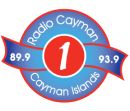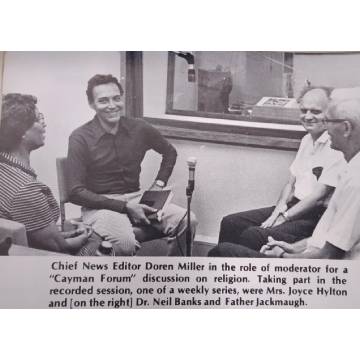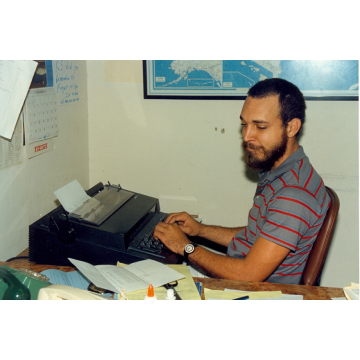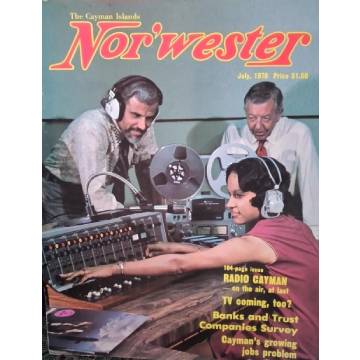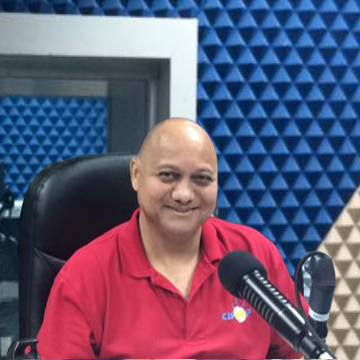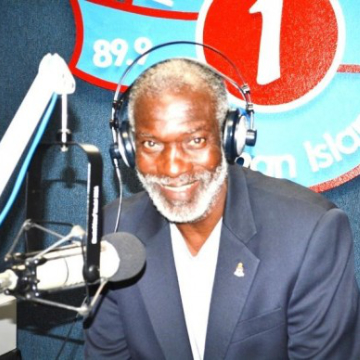News
Cayman Environmental Education Focus Group Established
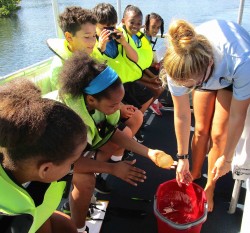
A range of Cayman-based environmental organisations have joined forces to provide an integrated and exciting spectrum of curriculum-linked outdoor teaching activities for the local community starting with a strong focus in Cayman’s primary schools. In November 2019, several local environmental organisations came together with the Ministry of Education, Youth, Sports, Agriculture, and Lands (MEYSAL), the Ministry of Commerce, Planning and Infrastructure (CPI), the Department of the Environment (DoE) and Department of Education Services (DES) identified the real need for support of the teaching and promotion of the environment for all students. Cayman’s cultural connection with both the land and the sea are paramount to both our tourism product as well as the safeguarding of our islands for present and future generations. This group is currently made up of representatives from the National Trust for the Cayman Islands, Guy Harvey Ocean Foundation, Reef Environmental Educational Foundation, Mangrove Education Project, Central Caribbean Marine Institute, Sea Elements, together with the Energy Policy Coordinator from the CPI and representatives from the DoE, DES and MEYSAL. By working together, participating organisations hope to increase access and utilisation of supplementary materials and activities developed by these organisations to aid teachers and parents. In addition, teachers will be provided with outdoor field trips to explore Cayman’s unique natural resources both on and offshore. In class activities will provide supporting resources to highlight the knowledge acquired during the field trips. These resources often tend to be underutilized because little is known about them in the schools. Furthermore, parents will also be made aware of environmental concerns in Cayman and the vital ecosystems that the country possesses. Environmental issues may not be top of mind for many when facing the daily task of supporting their families and supervising schoolwork. Many parents also must overcome cultural/historical fear and uncertainty of the ocean and marine species, which run counter to the passion and knowledge students can benefit from. After several meetings, the Focus Group collectively established its vision: to strengthen our connection with the environment as a central tenet of Caymanian culture through enhanced and accessible environmental education for all. To achieve this the organisation will strive to: * Facilitate collaboration between environmental organisations – to improve communication between organisations to maintain partnerships in education projects. * Engage schools and educational groups in science education – to enhance engagement and communication between schools and external education organisations (included but not limited to charities, non-profits, and government) to facilitate high-quality, up-to-date and relevant environmental education. This group started small but will expand in due course to include all local environmental educational organizations across the three islands. During the focus group meetings, the group spent time learning about the mission of each organization, their available educational resources, their experiences with environmental education in the Cayman Islands, and familiarizing everyone with the current curricula layout. “We’re all aiming to accomplish similar goals,” says Jessica Harvey, Project Manager of the Guy Harvey Ocean Foundation, “By pooling our resources and experiences with a strong willingness to work and support each other, the Cayman Islands will be in a better position to adapt to our ever changing business, development and natural environment; help our community become more sustainable users of our natural resources and lead by example as a country recognizing we can no longer continue to take our natural resources for granted.” The COVID-19 pandemic has reinforced this need and demonstrated how, if given an opportunity, nature will bounce back stronger than before and there are plenty of entrepreneurial ideas waiting to be discovered. Schools and families are having to adapt learning strategies quickly, pay more attention to how their students and children learn and better understand how access to the environment is fundamental for everyone’s wellbeing. Initially, a website called Cayman Environmental Education will be created to simplify the search for local environmental information for parents and teachers. It will include links to educational material from the Focus Group members along with their profile and contact details. A calendar will also be available and updated regularly to showcase different environmental and education activities hosted in the Cayman Islands. “We are delighted to all be part of the formulation of a committed group of environmental experts, to support the environmental education of Caymans youth,” says the Focus Group, “We are confident that it will be a highly valuable resource both now and for many years to come.”
